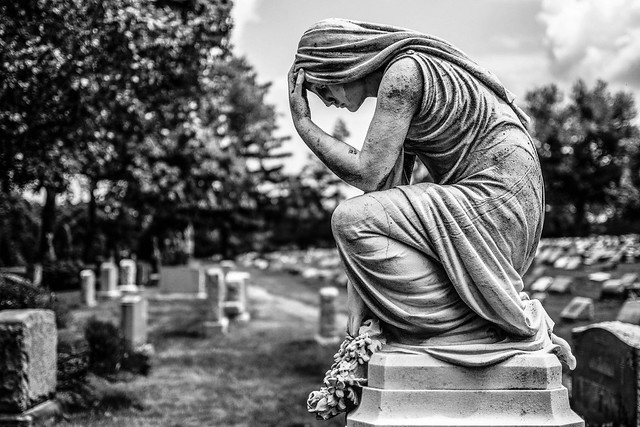
“But we do not want you to be uninformed brothers, about those who are asleep, that you may not grieve as others do who have no hope.” 1 Thessalonians 4:13
On Sunday Charlie helped us to understand from 1 Thessalonians 4 why it really matters that we understand what will happen to our Christian brothers and sisters who have died.
We still grieve
Death hurts. That’s why grief is painful. Jesus knew that pain and wept at the pain of death along with his followers. One of the most precious moments in the gospels is when Jesus goes to Bethany, near Jerusalem, because his friend Lazarus has died. He meets Martha, and then Mary, on the way towards the tomb.
As he talks with them towards their brother’s grave we’re told that he is deeply moved in his spirit and greatly troubled. And as they take him to the tomb, John tells us that Jesus wept. He weeps – even though (if we read on) he knows that he is about to raise Lazarus from the dead. He knows that their grief is about to be over, and filled instead with incredible joy. But in that moment he weeps. Jesus knows that death isn’t just an unwelcome intruder into this world; it is awful and sad and painful, and something to cry about.
And so it is right to weep, and to cry out to God in our pain. We still grieve, but with one fundamental difference.
We have hope
In the midst of our grief we have a hope – that we will see our brothers and sisters again. This is the great truth of 1 Thessalonians 4:13. Christian brothers and sisters who have died have ‘fallen asleep’ and there will be a day when Jesus will wake them up again. Death is not the end. So we don’t despair and we are not hopeless.
At my grandad’s funeral we stood in a plain room and sang hymns with no piano to accompany us. People shared stories about how he became a Christian in a tent meeting on Clapham Common, and was involved in evangelism on Brick Lane. I found out that even in his nineties, hunched over and unable to walk more than about twenty meters without taking a break, he would still set off down his street to share the gospel with his neighbours.
His gravestone has on it the words ‘Purchased with the precious blood of Jesus’. We had lost a father, grandfather, brother and friend. Yet, in the midst of our sadness there wasn’t a shred of uncertainty about where Mark Wicks was and where he will be when Jesus returns. We’ll see him again, and you’ll get to meet him too.
That’s the difference that Jesus makes. It is on the saddest days of our lives that we need to know this truth. I love that Paul doesn’t sweep sadness away – he never says that we shouldn’t grieve or we shouldn’t be sad. What he wants is for us to grieve as Christians – with a solid future hope.






